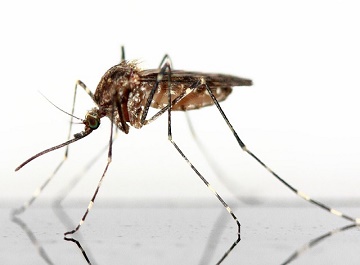GM mosquitos to fight dengue
July 29, 2014 | Tuesday | News | By BioSpectrum Bureau
GM mosquitos to fight dengue
Thousands of dengue cases are reported every year in India
UK-based Oxitec, an Oxford University spin out, has approached the Indian government for necessary approvals to begin trials for genetically-modified (GM) mosquitoes, which supposedly help in fighting the dengue menace.
The modified male mosquito named '513A' will have a gene that ensures its offspring dies before reaching adulthood and thus control breeding of dengue spreading mosquitoes.
This mosquito has been tested in Brazil, where dengue emerged as a big worry during the recently concluded World Cup Football tournament, and the Cayman Islands.
"Oxitec is working with GBIT, a privately held Indian company that specializes in developing and commercializing novel technologies in health and agriculture, with a view to introducing this technology for dengue vector control in India," the company spokesperson said.
Thousands of dengue cases are reported every year in India.
In the laboratory, activity of this gene can be controlled by giving mosquitoes the antidote 'tetracycline'.
With regard to regulatory clearances, GBIT has already received nod for contained laboratory-based studies. Besides, permission for larger technology trials has been sought from the Review Committee for Genetic Manipulation (RCGM).
Field based studies would only begin following appraisal and approval by the relevant national bio safety committees, RCGM and Genetic Engineering Approval Committee (GEAC). "We expect a large-scale trial to be the next step; however, the timing is entirely within the hands of the RCGM," the official noted.
These GM male mosquitoes can mate only with females of the same species (dengue spreading), so that it is exclusively targeted towards dengue mosquitoes with no effect on other insect species.
Every wild female which mates one of the modified males will have offspring who carry the gene and without the antidote, they won't survive.
"In this way, by repeatedly releasing Oxitec males, we can drastically reduce or even locally eliminate the dengue mosquito population," he said.










